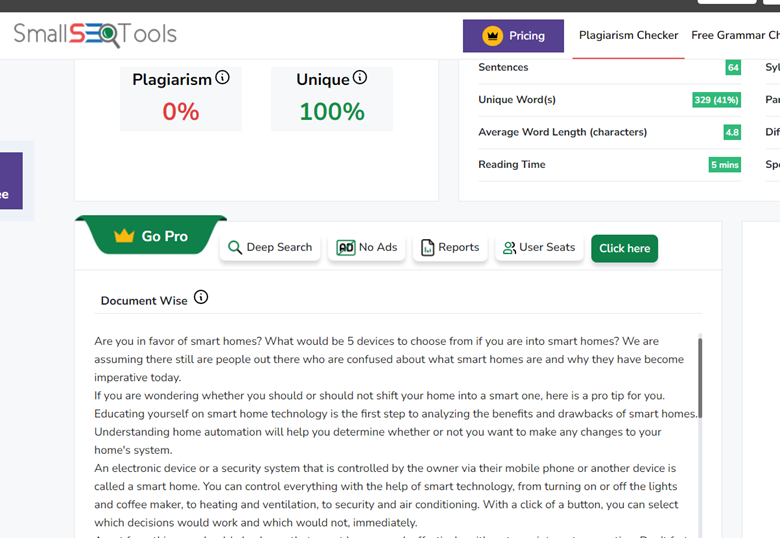Are you in favor of smart homes? What would be 5 devices to choose from if you are into smart homes? We are assuming there still are people out there who are confused about what smart homes are and why they have become imperative today.
If you are wondering whether you should or should not shift your home into a smart one, here is a pro tip for you. Educating yourself on smart home technology is the first step to analyzing the benefits and drawbacks of smart homes. Understanding home automation will help you determine whether or not you want to make any changes to your home’s system.
An electronic device or a security system that is controlled by the owner via their mobile phone or another device is called a smart home. You can control everything with the help of smart technology, from turning on or off the lights and coffee maker, to heating and ventilation, to security and air conditioning. With a click of a button, you can select which decisions would work and which would not, immediately.
Apart from this, you should also know that smart homes work effectively with a strong internet connection. Don’t fret, we already have a recommendation and that is Spectrum since it offers amazing internet plans that you can rely on. Moreover, Spectrum WiFi has amazing speed tiers to run all sorts of smart home devices.
On that note, below are the pros and cons of using smart home technology:
Let us begin with the advantages.
Convenience
The convenience of smart homes is undeniable. Whether you want to turn up the thermostat before you come home in the evenings or sync your media devices throughout the house, all systems can be automated and integrated to meet your specific needs.
You no longer have to worry about the small, yet crucial hassles like adjusting the AC temperature or turning off the lights in the morning. If you forgot to turn off the pot before going to work, your food will be ready and warm for you when you get to the kitchen.
Energy Efficiency
Every house owner is probably concerned about energy conservation. So many electronic gadgets and convenient appliances increase the amount of energy consumed. Therefore, to meet the demand for energy efficiency, your home needs to be energy efficient and there shouldn’t be any energy waste. For instance, smart thermostats can be programmed to adjust the temperature depending on your daily habits and preferences, saving you money and energy.
Enhanced Security
Any house must have a safe environment. There is always a risk of burglars and thieves breaking into your house regardless of how many locks you have. Smart homes, however, can lower your security risks by alerting you when anything goes wrong.
Using motion sensors and cameras, smart homes monitor your home in real time. Moreover, you can set up many systems to detect and alert you if your home is being invaded, making you feel more secure.
A smart home also has some disadvantages. Some of these are:
Installation and Expenses
Probably the biggest disadvantage, or con, of a smart home system is its cost. Smart home systems are offered by quite a few companies, but they are all quite pricey. The cost of this is beyond the reach of most people. In order to install this system, you will need a good income and savings. So, you need to see if certain devices are within your budget.
Risk of internet outages
One of the biggest disadvantages of a smart home is its reliance on technology. You might need to stand up and manually engage with a device if you lose your internet connection or have a power surge. You can still use the basic features of your phone or watch, thanks to the backup systems on most of these high-tech devices. It may, however, be necessary to wait until you are back online before you can use more advanced features.
Limitations and Compatibility
Even though smart homes have many undeniable benefits, they also have some limitations. It is important to check which devices are compatible with the technologies you’re currently using in your home. Not all technologies will work with all devices. It may be necessary to upgrade or install some of them, which might increase your costs.
Wrapping Up
By keeping these pros and cons in mind, you will be able to decide whether you want to install smart homes in your house. There is no doubt that this installation would greatly enhance the value of your house. However, you will also have to bear the costs and expenses. It is therefore important to think things through before jumping to conclusions.



